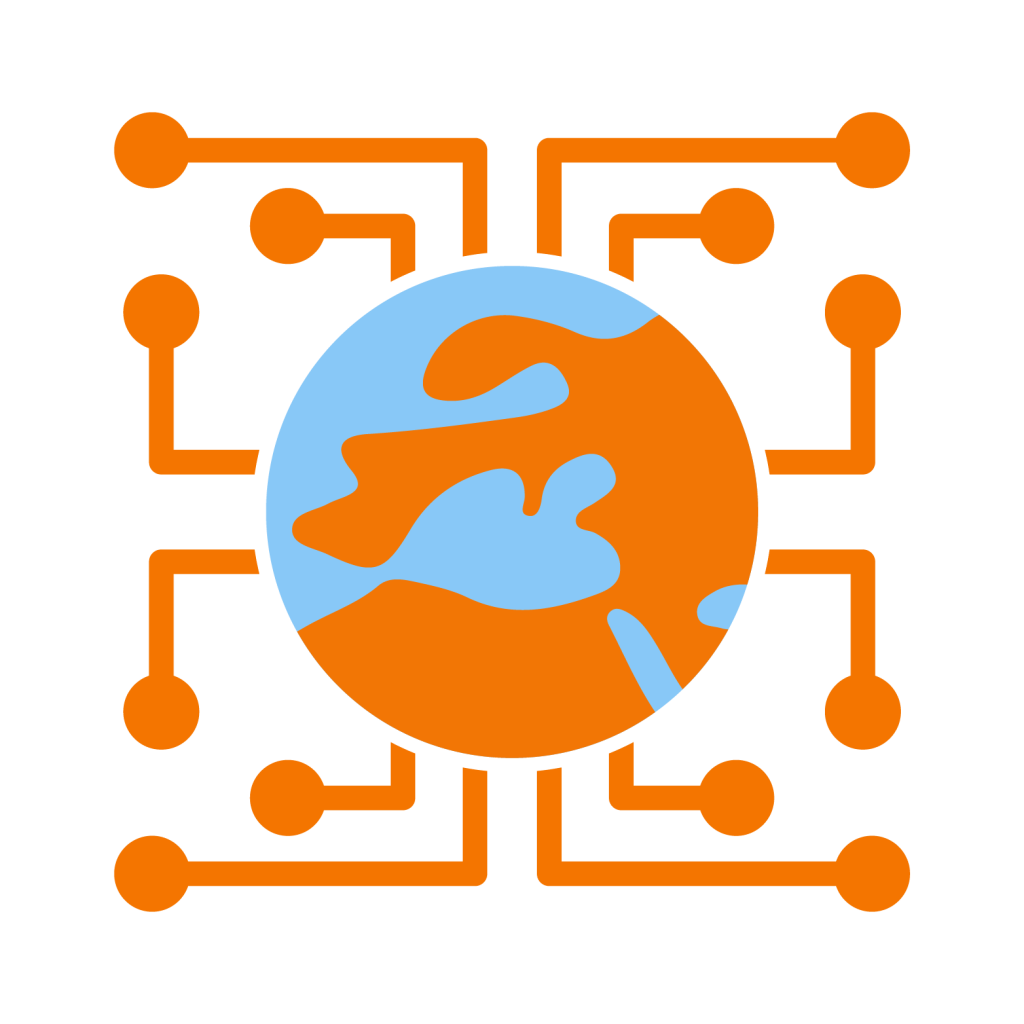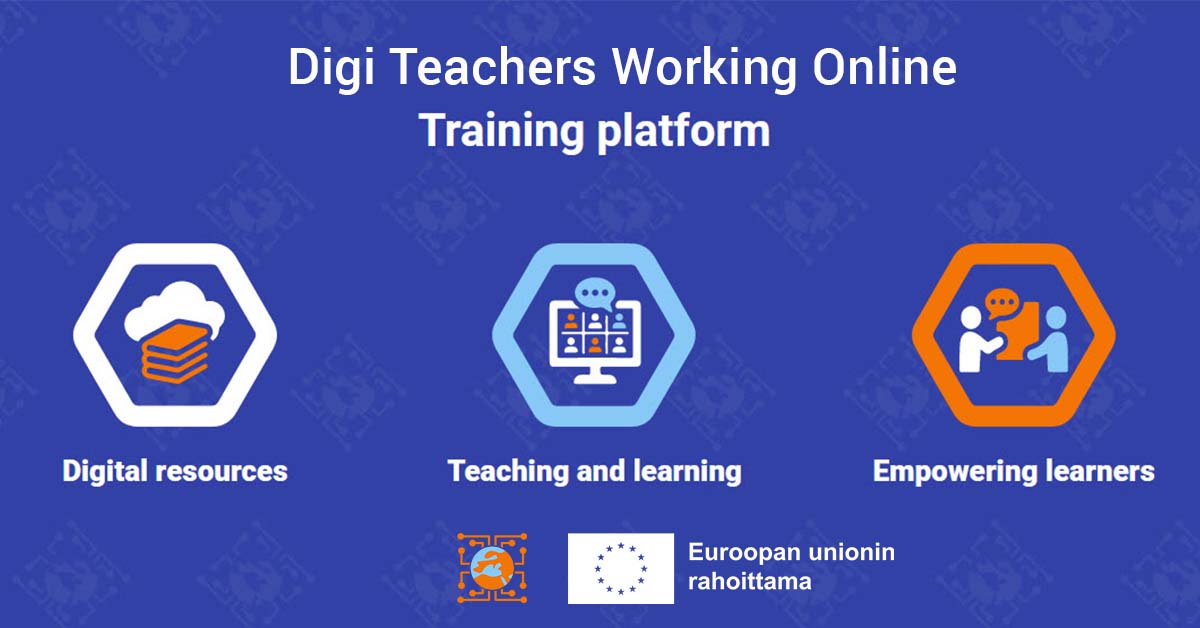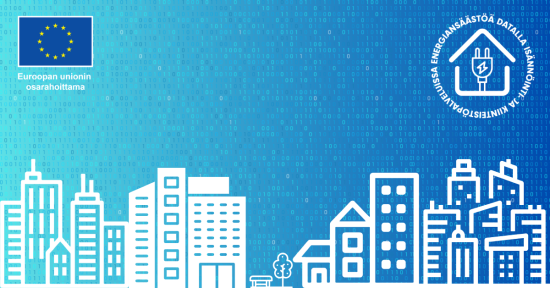The DigiTeachers pilot training concentrated on improving digital skills and competences of VET teachers, linking the competencies strongly to pedagogy. During the training teachers learned new tools, gained ideas and practices to implement to online education. During the project teachers had an opportunity to network with European colleagues engaged in special education. And with the new skills teachers can also support their students’ digital skills.
From syllabus to evaluation
The project started with creation of the training syllabus. The syllabus is based on 1) DigCompEdu framework and 2) the results of a Digi Teachers project survey that was carried out in each partner country of the project. Syllabus is divided into three modules and areas of expertise under each module:
- Digital resources
- Selecting digital resources
- Creating and modifying digital resources
- Managing, protecting, and sharing digital resources
- Teaching and learning
- Teaching
- Guidance
- Collaborative learning
- Self-regulated learning
- Empowering learners
- Accessibility and inclusion
- Differentiation and personalisation
- Actively engaging learners
Once the syllabus was finalized, the project continued with building the training module, toolkit, and Open Badges.
Open Badges as an assessment method
Digital Open Badges were a new concept for our Spanish, Italian and German partners. However, all partners thought that the concept offers an excellent assessment method, so it was decided to create Open Badges and issue them to teachers. Based on the syllabus, three Open Badges were created.

These Open Badges are multilingual. Default language is English, and the recipient can change the language to Germany, Spanish, Italian or Finnish.
Evaluation was be done with tasks during the training. Tasks were created so that they would benefit the teachers and the modular structure makes it easy to take the results straight to teaching. The tasks were also structured in such a way that they can be customized by country, organisation, and teacher.
If the tasks were accepted, the teacher was issued an Open Badge – one for each module.
We had 28 teachers participating in the pilot training and all together 78 Open Badges were issued – result that we see excellent!
Teachers’ experiences with Open Badges
Open Badges were a new experience for the teachers. So, from this point of view they acted as Open Badge ambassadors in their countries.
Teachers were enthusiastic about Open Badges, even though their utilization is still in its early stages. Sharing badges first seemed like a strange idea, especially on LinkedIn, but sharing the links of Open Badges for example in CV feels natural. Sharing an Open Badge in email signature was also seen as a good option.
The assessment tasks were seen as good entities, but they could have been more detailed and more clearly instructed.
The website combines online study materials and a toolkit
From the project website one can find a vocabulary, the syllabus, open badges and evaluation tasks, and of course, the toolkit.
Language versions – Finnish, Spanish, Italian, Frech and German – are made with an automatic translator.
 Digi Teachers Working Online -project in a nutshell
Digi Teachers Working Online -project in a nutshell
The Digi Teachers Working Online project helps VET teaching staff improve their digital skills and competences with a strong link to pedagogy. Teachers will gain new tools, ideas and practices to implement online education, support their students’ digital skills and network with European colleagues engaged in special education.
Duration:
1.11.2021 – 30.10.2024
Project partners:
- Live Foundation, Suomi (project lead), www.livesaatio.fi
- Esment Fundación, Spain, www.amadipesment.org
- Arbeit und Bildung, Germany, www.arbeit-und-bildung.de
- OPEN group, Italy, opengroup.eu/
- Arfie, Belgium, www.arfie.info
- TIEKE Finnish Information Society Development Centre, Finland, www.tieke.fi
Funded by:
- Erasmus+ -programme coordinated by Finnish National Agency for Education
Contact information:
- In TIEKE Merja Sjöblom
- In Live Foundation project coordinator Karoliina Oksanen, +358 40 661 4424, karoliina.oksanen@inlive.fi










